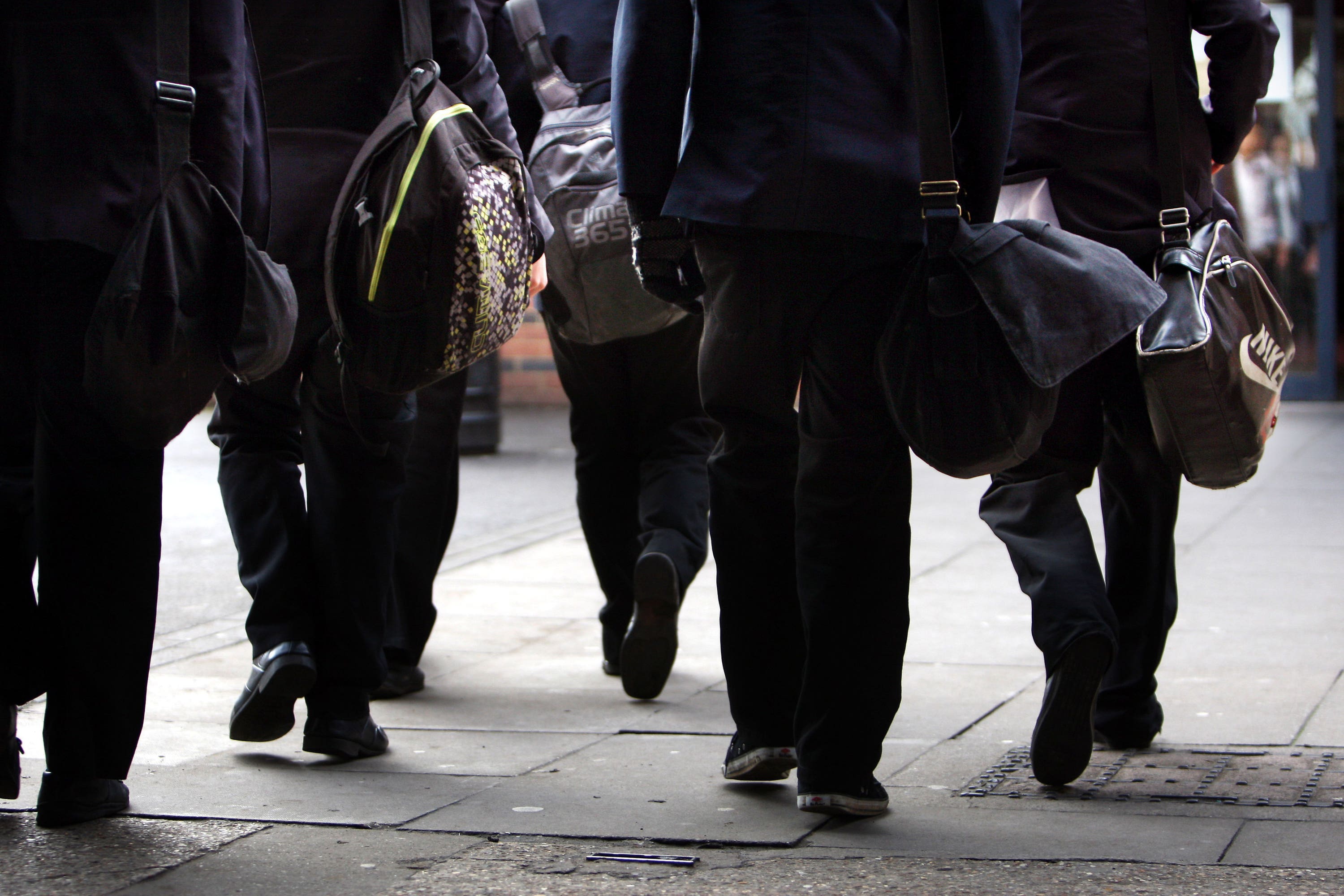‘Deplorable’ support services having ‘profound impact’ on children’s wellbeing
The majority of school and college leaders believe children’s support services are ‘inadequate’, a survey suggests.

Your support helps us to tell the story
From reproductive rights to climate change to Big Tech, The Independent is on the ground when the story is developing. Whether it's investigating the financials of Elon Musk's pro-Trump PAC or producing our latest documentary, 'The A Word', which shines a light on the American women fighting for reproductive rights, we know how important it is to parse out the facts from the messaging.
At such a critical moment in US history, we need reporters on the ground. Your donation allows us to keep sending journalists to speak to both sides of the story.
The Independent is trusted by Americans across the entire political spectrum. And unlike many other quality news outlets, we choose not to lock Americans out of our reporting and analysis with paywalls. We believe quality journalism should be available to everyone, paid for by those who can afford it.
Your support makes all the difference.The “deplorable” state of children’s support services is having a “profound impact” on the wellbeing of pupils, a school leaders’ union chief will warn.
Evelyn Forde, president of the Association of School and College Leaders (ASCL), will condemn the Government for the erosion of children’s support services over the past decade.
In a speech to more than 1,000 headteachers and principals at the union’s annual conference on Friday, Ms Forde will say that schools and colleges have been left “to pick up the pieces”.
Her comments come as an ASCL survey suggests the majority of school and college leaders believe children’s support services are “inadequate”.
They simply do not have sufficient resources to be able to cope. And that has had a profound impact on the wellbeing of children
Headteachers who were surveyed reported providing additional mental health and counselling support, employing their own educational psychologists, and providing food banks and uniforms for children in an effort to fill the gaps.
School and college leaders said they had seen escalating mental health issues among children, self-harm and eating disorders, and poor attendance and behaviour as a result of inadequate local services.
The ASCL survey, of 1,120 headteachers and principals in state schools and colleges across England, Wales and Northern Ireland in February, found that 99% said children’s mental health services were inadequate and 96% said children’s social care services were inadequate.
The poll found that 81% said local authority attendance support services were inadequate, and 64% said police support services were inadequate.
Some school leaders reported seeing more misuse of social media, increased drug use, and an increase in poor student behaviour as a result of insufficient early intervention support.
More than three in five (63%) said more pupils were being drawn into crime compared with before the pandemic and the cost-of-living crisis, and 71% said more pupils were affected by abuse or neglect.
The vast majority of school leaders said they believed more pupils were being affected by poor mental health and poverty compared with before Covid-19 and the recent cost-of-living pressures.
Speaking at the International Convention Centre (ICC) in Birmingham, Ms Forde will say: “Today we publish the bleak results of a survey showing the deplorable state of local children’s support services.
The core business of education is no longer just education. We’re actually providing an unofficial network of welfare support that goes largely unseen by the public
“To be clear. The dedicated professionals working in local authorities and other local agencies are not to blame.
“These support services have been eroded over the last decade by government austerity, by increasing demand, or by a mixture of both.
“They simply do not have sufficient resources to be able to cope. And that has had a profound impact on the wellbeing of children.
“And it has left us – in our schools and colleges – to pick up the pieces. We’ve become a ‘fourth emergency service’. By default, we’ve ended up with the unsustainable burden of trying to fill in the gaps from budgets and workforces that are stretched beyond breaking point.
“The core business of education is no longer just education. We’re actually providing an unofficial network of welfare support that goes largely unseen by the public.”
A Government spokesperson said: “We recognise the challenges that many families face in getting access to education, health and care that meets their needs.
“We recently published our plan for children’s social care, backed by £200 million, which will prioritise early help and intervention for families to help them to stay together where possible and overcome adversity.
“We are also investing £16.6 million per year for the next two years for virtual school heads to provide dedicated educational support to children with a social worker, providing £79 million for children and young people’s mental health services, and investing £21 million for up to 400 more educational psychologists over the next two years.”